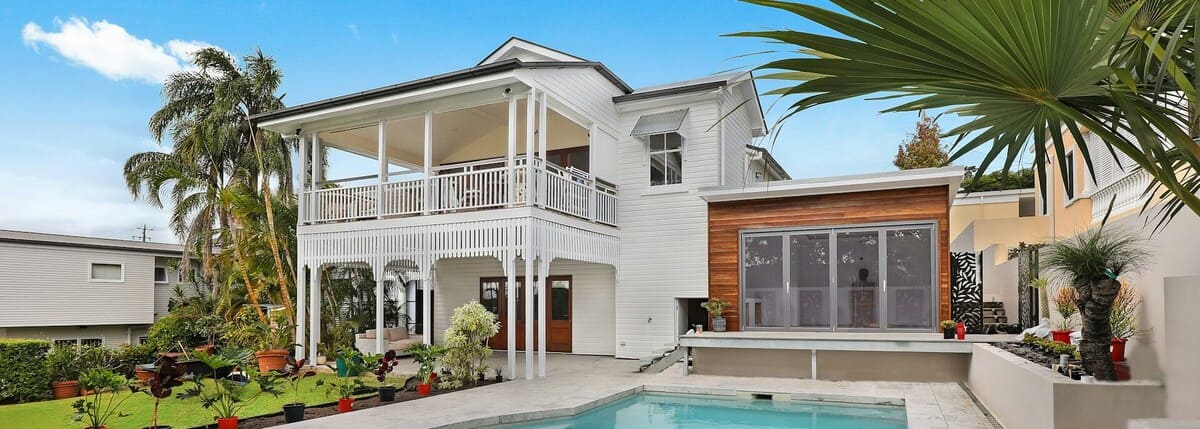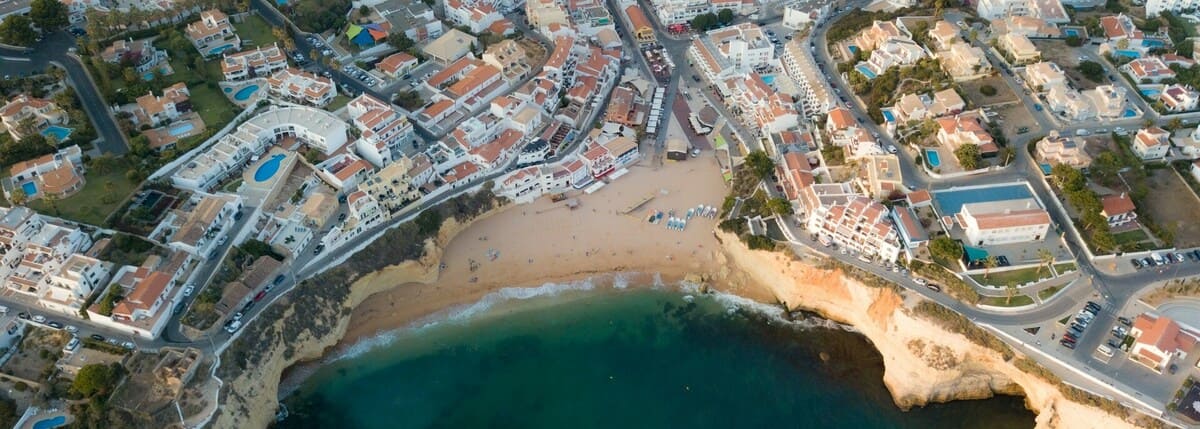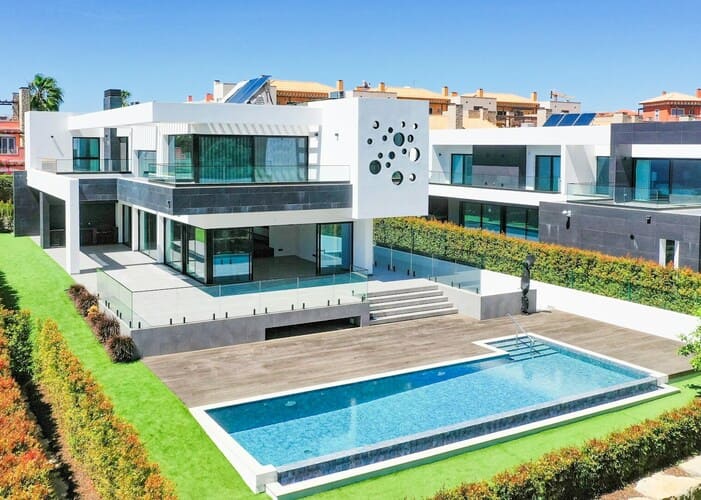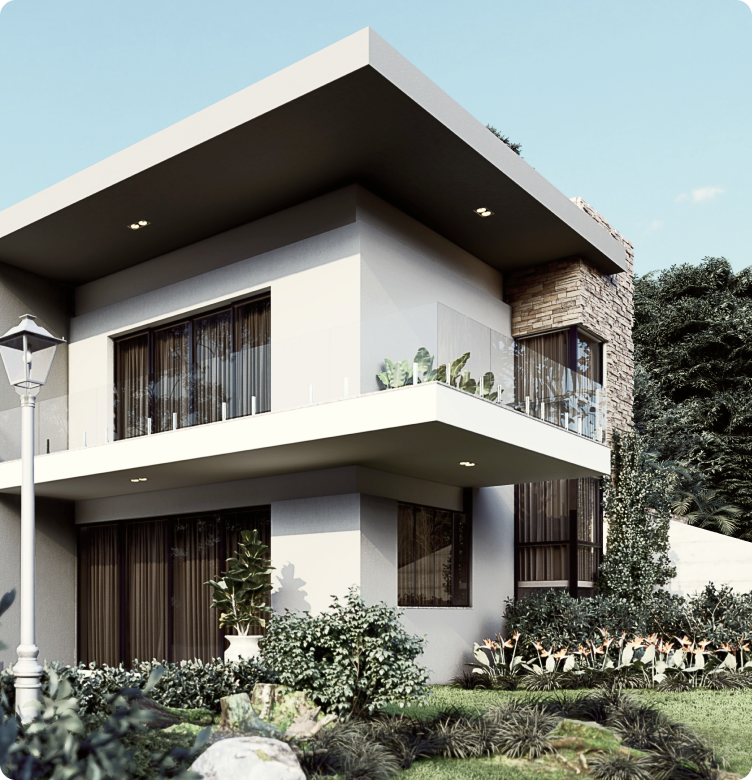Portugal, renowned for its rich history, stunning landscapes, and vibrant culture, has become a premier destination for luxury real estate investors. From picturesque coastal areas to rolling vineyards and historic cities, Portugal offers an array of options for those seeking opulent and exclusive properties.
In recent years, the allure of Portugal’s residential properties has captivated discerning buyers from around the globe. Investors are presented with a diverse selection of high-end real estate, including villas, apartments, vineyards, castles, palaces, farms, beachfront mansions, and more.
Cities such as Lisbon and Porto have risen to prominence among luxury buyers, making it easier than ever to find a dream home in one of Europe’s most welcoming countries. Despite the excitement of purchasing luxury property, navigating the associated taxes and fees can be a complex and less glamorous aspect of the process. However, understanding Portugal’s property tax system reveals it to be more manageable than it may initially appear.
In this Portugal Luxury Property Tax Guide, we will provide you with everything that you need to know about the property taxes in Portugal related to buying luxury property. We will also give you an overview of the luxury property prices in Portugal, explore Capital Gains Tax and Inheritance Tax rates, and discuss the importance of acquiring expert assistance for navigating the property purchase process.
Inside the Portuguese Luxury Property Market

The Portuguese luxury property market offers a unique blend of luxury and value, attracting buyers from around the world. Typically, properties outside city centers or away from the coast are more affordable.
However, investing in luxury properties in Portugal entails a much higher cost. Despite this, purchasing property in Portugal remains relatively affordable compared to other Western European countries, making it an attractive option for discerning investors.
An overview of the luxury property prices in Portugal
Despite Portugal’s appeal to the international market, the country remains an affordable option compared to other European destinations. The table below presents the 2023 average price per square meter for luxury homes in key areas such as Lisbon, Porto, and the Algarve region.
Lisbon, as the capital, features properties with higher asking prices, while Porto offers a mix of historical charm and modern luxury. The Algarve, known for its stunning coastline, attracts high-end buyers seeking exclusive properties.
The table below explores prices for luxury real estate in the most sought-after Portuguese neighborhoods. While the asking prices listed provide a baseline, the actual sales prices can be significantly lower. Conversely, some properties may be priced lower than anticipated.
Portuguese Area | Price Per Square Meter (€) |
Lisbon – Santo António | €8,117 |
Lisbon – Parque das Nações | €7,728 |
Porto – Foz do Douro and Boavista | €6,460 |
Algarve – Cascais and Estoril | €7,330 |
Algarve – Castro Marim | €6,151 |
Algarve – Loulé | €5,191 |
The appeal of luxury properties in Portugal

The appeal of luxury properties in Portugal extends beyond their stunning aesthetics, exceptional features and the most desirable locations in Portugal. Their appeal is a combination of favorable conditions related to property acquisition, financial transactions, and the local tax landscape.
When investing in a luxury home in Portugal, potential buyers encounter a diverse array of properties, from grand villas and palaces to secluded farms and vineyards, each offering unique benefits that cater to various preferences and lifestyles.
Portugal’s streamlined legal framework facilitates the process of acquiring such properties and ensures clarity and security in financial transactions. Portugal’s tax incentives, such as the Non-Habitual Resident (NHR) regime, also offer significant advantages to foreign investors, making the prospect of owning a luxury property even more enticing.
Despite the Non-Habitual Resident (NHR) tax regime’s scheduled termination in 2024’s State Budget Law, applications were extended until March 2025. The regime has now taken on a new form, transitioning to the Tax Incentive Scheme for Scientific Research and Innovation (IFICI).
Under this new tax regime, residents will be taxed at a special rate of 20 percent on the net income from Category A (employment income) and Category B (business and professional income).
Non-residents who recently moved to Portugal and have not resided here in the last five years can apply for this tax regime. The taxation rate will exclude tax on dividends, capital gains, and pensions. You can discover more in this guide to The New NHR Tax Regime by our independent property buying service partner, Goldcrest.
The choice of a perfect luxury home involves careful consideration of factors like proximity to upscale amenities, cultural hotspots, and scenic views, which significantly enhance the property value and allure. Typical features of luxury properties in Portugal include high levels of privacy and security, unique architectural designs, spacious interiors with high-quality materials, and state-of-the-art technology. These elements make the luxury property market particularly attractive to international investors.
What is the luxury property tax in Portugal?

Whether you are an individual property investor or plan to make corporate property ownership transactions, Portuguese residents and non-residents need to pay taxes when buying property in Portugal.
What is often referred to as luxury property tax in Portugal is actually known as the Adicional Imposto Municipal Sobre Imóveis (AIMI). This annual property tax is an additional tax to the Immovable Property Tax (IMI) and is levied on high-value assets. Individuals and entities who own properties valued above €600,000 are liable for this tax payment.
In the sections below, we explain what the Municipal Property Tax, also known as the Immovable Property Tax (IMI), is. We will then delve into the Adicional Imposto Municipal Sobre Imóveis (AIMI), also known as the Additional to IMI (AIMI), which is sometimes referred to as a Wealth Tax in Portugal.
Municipal Property Tax, also known as Immovable Property Tax (IMI)

The Imposto Municipal sobre Imóveis (IMI, Municipal Property Tax or Immovable Property Tax) is an annual municipal property tax that Portuguese property owners are required to pay. Paid annually and based on limits stipulated by the Portuguese government, each municipality in Portugal has the power to decide what Municipal Property Tax (IMI) rate will be applied to properties within their jurisdiction.
The IMI is levied on the Property Tax Value (VPT), not the price you paid for your real estate purchase. The Immovable Property Tax rates range from 0.3 to 0.45 percent of the VPT for urban property, and the range can also reach 0.5 percent in certain circumstances. The IMI rate applied for rural or rustic buildings is 0.8 percent.
Portuguese municipalities receive funding from the property tax, which is also used for administrative costs and to maintain public facilities. To meet your tax obligations, property owners must pay their yearly property taxes, or IMI tax, on the last day of the applicable tax year. To determine the IMI tax rate, the value of the tax asset (VPT) must be multiplied by the relevant rate. The payment can be made in the following installments, dependent on the assessed value of the IMI:
- Total tax amounts up to €100 must be paid in full by the end of May
- Amounts exceeding €100 but not surpassing €50 can be paid in two installments in May and November
- Amounts exceeding €500 can be paid in three installments in May, August, and November
Possible exemptions on IMI tax
Tax exemptions and reductions are available on property taxes in Portugal. When it comes to IMI Tax, there are two instances that are eligible for exemption from IMI Tax, which we will explore in detail in the section below.
Eligibility criteria
Eligibility for exemption from IMI real estate taxes falls into two categories, which we will now explore. The first category for a permanent exemption from paying IMI Tax is for families with limited income and low-value assets.
The second category for exemption from IMI Tax is applicable through temporary exemptions. These temporary exemptions are available if the property owner finds themselves in one of the following two scenarios:
- New property owners who have recently acquired their primary residence are exempt from paying IMI Tax. This is a three-year exemption and depends on whether the property’s Taxable Asset Value (VPT) does not exceed €125,000 and the household’s annual taxable income remains under €153,300.
- Rehabilitation projects also qualify for a three-year IMI exemption. An exemption may be granted if the property is over 30 years old or is situated in an urban area earmarked for revitalization. local authorities must acknowledge the intent to rehabilitate the property according to specific regulations.
How to Apply for Exemptions
As a Portuguese tax resident, you can apply for exemptions from property taxes in Portugal through the Portuguese Tax Authority’s online portal, Portal das Finanças, or at your local tax office. Although it is not a strict requirement, it is advised that international property investors who are not Portuguese tax residents acquire fiscal representation to navigate the Portuguese tax system and apply for possible tax exemptions.
Understanding the criteria for luxury property tax or Additional to IMI (AIMI)

Understanding the criteria for luxury property tax (Adicional Imposto Municipal Sobre Imóveis, or AIMI)(AIMI) in Portugal requires a grasp of its application rates and exemptions. The AIMI rate generally stands at 0.7 percent for individual owners who own properties valued above €600,000, with variations for properties held by companies, especially those based in tax havens or countries that benefit from favorable tax schemes. Rates are assessed and set by the Portuguese Tax Authority.
This tax, assessed annually on 1 January, is based on the total tax registration value of urban residential properties. AIMI is charged on high-value residential properties owned by individuals, corporations, and entities without autonomous legal personality, underscoring Portugal’s initiative to regulate and tax luxury real estate. Specifically, owners of shares in Portuguese real estate exceeding a value of €600,000 are subject to AIMI.
This tax applies to Portuguese residents, whether natural or legal, who possess properties with a significant Tax Asset Value (VPT). Individual property owners benefit from a €600,000 exemption, meaning AIMI is not applied unless the property value surpasses this threshold. For couples jointly owning a home, the exemption doubles to €1.2 million, beyond which the AIMI Tax is applicable.
Calculating of luxury property tax or AIMI
Based on property value thresholds and dependent on the property’s location and the type of property you own, the AIMI rate can be calculated as follows:
- 0.7 percent tax on owning property valued between €600,001 and €1 million
- 1 percent tax on property valued between €1mil and €2 million
- 1.5 percent tax on property if its total value is above €2 million
The Additional to IMI (AIMI) impact on property owners
When buying luxury property, investors need to budget for AIMI tax as well as other taxes and fees related to property acquisition. These taxes also include Property Purchase Tax (IMT), also referred to as the Property Transfer Tax or IMT Tax, Rental Income Tax, Capital Gains Tax if you decide to sell the property, as well as fees for bank mortgages, Stamp Duty, and Notary fees.
You can learn more about these taxes in Portugal in our Complete Guide to Property Taxes in Portugal article. In the sections below, we will explore the financial implications of the AIMI tax for luxury property owners and its overall effect on property value and marketability.
Financial implications of AIMI Tax for luxury property owners
The AIMI Tax introduces certain financial implications for luxury property owners in Portugal. Individual owners are charged a 0.7 percent tax rate on properties exceeding €600,000, with different rates applicable to properties owned by companies, especially those based in tax havens or benefiting from favorable tax regimes.
The tax affects both individuals and entities, including corporations and non-autonomous legal entities, highlighting Portugal’s efforts to regulate and tax luxury real estate effectively. Portuguese residents, whether individuals or legal entities, owning properties with substantial Tax Asset Values (VPT) are liable for AIMI. For couples jointly owning a home, this exemption doubles to €1.2 million, ensuring that only the value beyond this threshold is subject to AIMI. Consequently, AIMI significantly impacts the financial planning of luxury property owners in Portugal.
Effect on the property’s value and marketability
The AIMI Tax significantly impacts property value and marketability in the Portuguese real estate market. Every three years, the Tax Asset Value (VPT) is automatically updated, based on 75 percent of the currency devaluation coefficients, typically resulting in an increased property value.
However, this automatic evaluation often overlooks factors that might reduce value, such as the property’s aging. Property owners can request a reassessment of their property’s value for IMI purposes, providing an opportunity to account for such depreciating factors outside the standard review period.
This reassessment can be crucial for maintaining a realistic and fair property value, which in turn affects marketability. Despite these tax implications, Portuguese real estate remains an attractive market for buyers, potentially offering significant returns on investment. The ability to manage property value through reassessment can sustain market interest and investment viability.
Understanding Capital Gains Tax on Property in Portugal

In Portugal, Capital Gains Tax on property sales varies significantly depending on the residency status of the seller. Portuguese residents are liable to pay tax on 50 percent of the capital gains, which is calculated by subtracting the acquisition value from the sale value of the property. This taxable amount is then subject to income tax rates, ranging from 14.5 percent to 48 percent, based on the individual’s total annual income. Non-residents face a flat Capital Gains Tax rate of 28 percent on the entire capital gain.
Importantly, for properties acquired after 1 January 1989, residents must include these gains in their annual income tax return. Sellers must also report the year of acquisition, purchase price, and any renovation costs supported by invoices to accurately assess the capital gain.
However, if the property sold is the seller’s primary residence and they reinvest the full sale price into another property within 24 months before or 36 months after the sale, they may be exempt from paying Capital Gains Tax. This reinvestment must be declared to the Portuguese Tax Authorities, ensuring the seller’s intention to remain within the property market in Portugal is clear.
Understanding Inheritance Tax in Portugal
Portugal does not impose an inheritance tax. However, Stamp Duty at a rate of 10 percent applies to assets inherited within Portuguese territory. Spouses, descendants, and ascendants are exempt from this duty, ensuring that immediate family members do not bear this additional financial burden.
The Importance of Securing Tax Representation
Although not a strict requirement, securing a tax representative in Portugal is important for non-residents engaged in property ownership, banking, or commercial activities within the country. This representative acts as a liaison with the Tax and Customs Authority (Autoridade Tributária e Aduaneira, AT) on all tax-related matters. However, European Union residents are exempt from this requirement, simplifying their tax obligations in Portugal.
Find Your Dream Property with BE Global
BE Global Properties is the discerning property investors’ gateway to meticulously curated properties that transcend ordinary listings. Look no further when searching for your next dream home or investment property in the Portuguese luxury real estate market.
Explore our exclusive listings and work with our experts who offer market insights for smart investment choices and exceptional customer service to find the property investment perfectly tailored for your lifestyle ultimately.
Contact BE Global Properties today and start your journey to find your global haven.
Frequently Asked Questions about Portugal Luxury Property Tax
What is the luxury property tax in Portugal and how is it calculated?
In Portugal, the luxury property tax, known as Adicional Imposto Municipal Sobre Imóveis (AIMI), is an annual tax on high-value properties. It applies to properties valued above €600,000, with rates of 0.7 percent for values between €600,001 and €1 million, 1 percent between €1 million and €2 million, and 1.5 percent above €2 million.
Are there any exemptions or reductions available for luxury property tax in Portugal?
In Portugal, the luxury property tax (AIMI) includes exemptions for individual property owners on the first €600,000 of their property’s value. For couples jointly owning a property, the exemption doubles to €1.2 million. These exemptions help mitigate the tax burden, ensuring AIMI applies only to high-value real estate.
What is the impact of luxury property tax on property prices in Portugal?
The AIMI tax affects property prices in Portugal by automatically updating the Tax Asset Value (VPT) every three years, often increasing property values. This can impact marketability. Property owners can request reassessments to account for depreciation factors, helping maintain realistic values and sustaining market interest and investment viability.
Are foreign buyers subject to the same luxury property tax rates in Portugal?
Yes, foreign buyers are subject to the same luxury property tax rates in Portugal as residents. Both individual investors and corporations, regardless of residency status, must pay the Adicional Imposto Municipal Sobre Imóveis (AIMI) on high-value properties.



